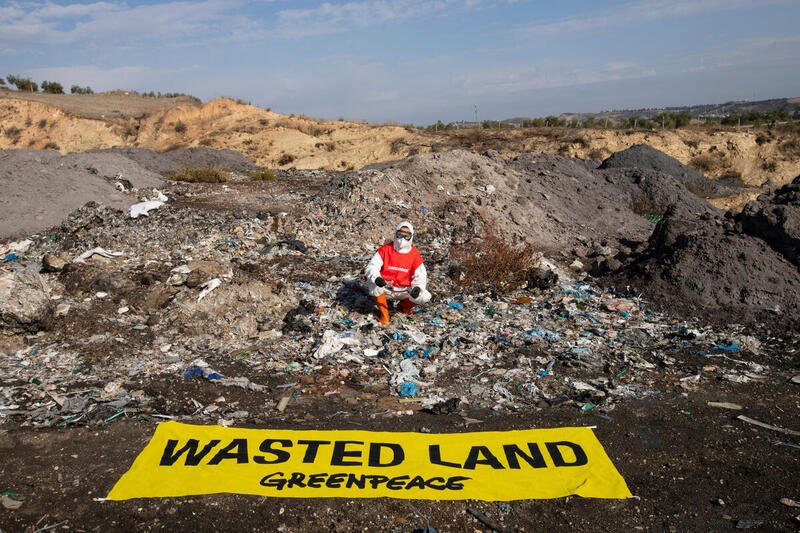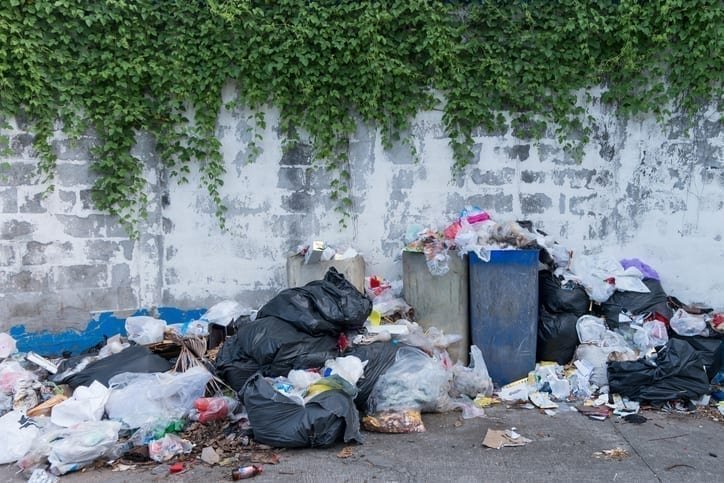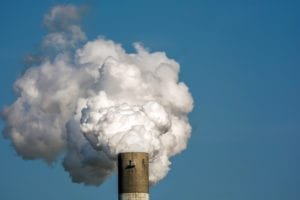Main image: © Caner Ozkan / Greenpeace
A report released by Greenpeace Mediterranean today (09 Feb) reveals that five sites in southern Turkey are extensively contaminated with hazardous chemical pollutants following the illegal dumping and open burning of imported plastic waste.
Last year Greenpeace investigators found UK grocery packaging dumped in the same five areas.
A cocktail of toxic chemicals
Scientists found that levels of toxic chemicals in the soil and ash at some of these locations are thousands of times higher than control sites, exposing the toxic legacy of our plastic waste exports.
Samples of soil, ash, water and sediment collected from the five plastic waste dumpsites were examined by scientists from both Greenpeace Research Laboratories and an independent laboratory.
They tested to identify as many chemical pollutants as possible, and also measured the concentrations of more than 60 chemical pollutants generally associated with plastic packaging or the burning of plastics.
The presence of a wide range of toxic chemicals was identified in ash and soil samples from all five locations, and detailed in the ‘Game of Waste’ report.
‘Many of the chemical pollutants found in the samples of ash and underlying soil are highly resistant to breaking down in the environment and can build up in animals and humans over time. Levels of these pollutants were very high at some of these sites where plastic imported from countries including the UK gets dumped.’
DR KEVIN BRIGDEN
One of the scientists who carried out the analysis
Pollutants detected
Dioxins and furans
The scientists found that the level of dioxins and furans detected at one site was the highest ever reported in the soil in Turkey – 400,000 times that of the control site. In another location, though not directly comparable, the level of dioxins and furans in ash was more than 6,000 times that of soil at the control site.
Dioxins and furans can be toxic to foetuses, cause premature birth, trigger tumours, cause skin lesions and affect hormones and immune systems.
Polychlorinated biphenyls (PCBs)
At one location the total concentration of polychlorinated biphenyls (PCBs) in soil was found to be 30,000 times higher than the control sample. Exposure to PCBs can harm embryos and foetuses and disrupt hormones, and PCBs can be transferred from mothers to babies through breastfeeding.
 Play Video about This Rock Might Just Save The World
Play Video about This Rock Might Just Save The World Play Video about Play 2 hours of rock
Play Video about Play 2 hours of rock Play Video about Play 2 hours of brook
Play Video about Play 2 hours of brook Play Video about Play 2 hours of sheep
Play Video about Play 2 hours of sheep















































